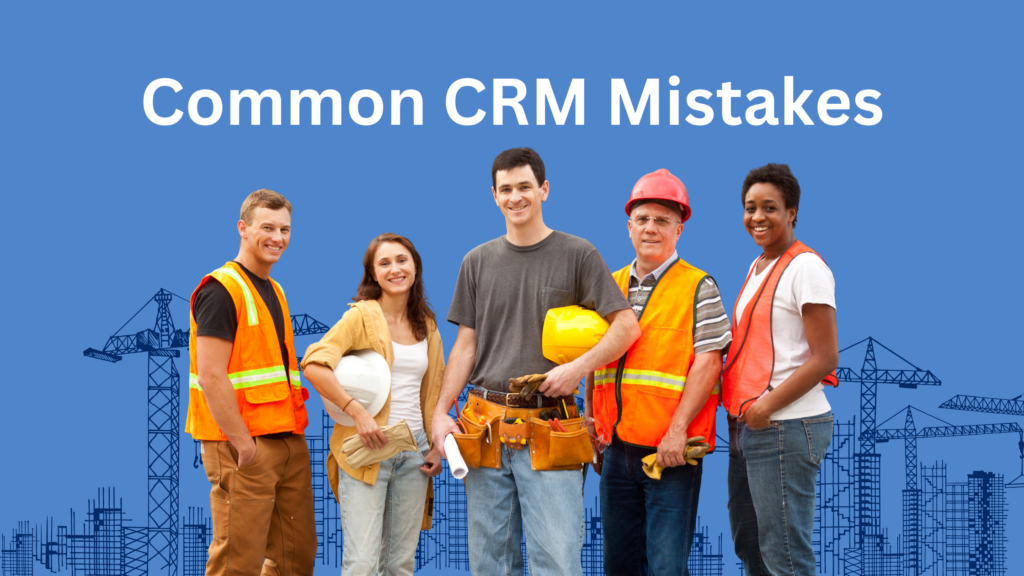
The Changing Landscape of Construction Management
As we approach 2025, the construction industry is undergoing a significant transformation. General contractors are facing new challenges and opportunities in an increasingly competitive market. One of the most important tools that can help contractors stay ahead of the curve is a business Customer Relationship Management (CRM) system. In this blog post, we’ll explore why every general contractor needs a business CRM in 2025 and how it can revolutionize their operations.
- The Changing Landscape of Construction Management
- What is a General Contractor Business CRM?
- The Benefits of Implementing a Business CRM for General Contractors
- Data-Driven Decision Making
- Adapting to the Digital Age
- Overcoming Implementation Challenges
- The Future of General Contracting with CRM
- Conclusion: Embracing CRM for Future Success
The Evolution of Construction Management
The construction industry has come a long way from paper-based project management and manual record-keeping. Today, digital tools and software solutions are becoming increasingly essential for efficient operations. Among these tools, a general contractor business CRM stands out as a game-changer for construction companies of all sizes.
What is a General Contractor Business CRM?
Before we dive into the benefits, let’s clarify what a general contractor business CRM actually is. A CRM, or Customer Relationship Management system, is a software solution designed to help businesses manage their interactions with current and potential customers. For general contractors, a business CRM goes beyond just managing customer relationships – it becomes a central hub for managing projects, teams, and overall business operations.
Key Features of a General Contractor Business CRM
- Contact management
- Project tracking
- Bid management
- Document storage and sharing
- Communication tools
- Reporting and analytics
- Integration with other construction software
These features work together to create a comprehensive system that can streamline various aspects of a general contractor’s business.
The Benefits of Implementing a Business CRM for General Contractors
Improved Customer Relationships
One of the primary advantages of using a general contractor business CRM is the ability to manage and improve customer relationships. In the construction industry, repeat business and referrals are crucial for long-term success. A CRM helps contractors keep track of client interactions, preferences, and project histories, allowing for more personalized service and communication.
Enhanced Project Management
Project management is at the heart of a general contractor’s work. A business CRM can significantly improve project organization and execution by:
- Centralizing project information
- Tracking project timelines and milestones
- Managing resources and schedules
- Facilitating collaboration among team members
By having all project-related information in one place, contractors can make informed decisions quickly and keep projects on track.
Streamlined Bid Management
Bidding on projects is a critical part of a general contractor’s business. A CRM can help streamline this process by:
- Organizing potential projects
- Tracking bid deadlines
- Storing and managing bid documents
- Analyzing win/loss ratios
This level of organization can help contractors increase their bid success rate and grow their business more effectively.
Improved Communication
Effective communication is essential in the construction industry. A general contractor business CRM can facilitate better communication by:
- Providing a centralized platform for team discussions
- Enabling easy sharing of documents and updates
- Tracking client communications
- Integrating with email and other communication tools
By improving communication, contractors can reduce misunderstandings, avoid delays, and keep all stakeholders informed throughout the project lifecycle.
Data-Driven Decision Making
In 2025, data will be more important than ever for making informed business decisions. A general contractor business CRM provides valuable insights through:
- Performance analytics
- Financial reporting
- Project profitability analysis
- Resource utilization metrics
These data points can help contractors identify areas for improvement, make more accurate estimates, and ultimately increase their profitability.
Increased Efficiency and Productivity
By automating many manual tasks and centralizing information, a CRM can significantly increase a general contractor’s efficiency and productivity. This can lead to:
- Reduced administrative workload
- Faster response times to client inquiries
- More accurate project scheduling
- Improved resource allocation
As efficiency improves, contractors can take on more projects and grow their business without necessarily increasing their overhead.
Adapting to the Digital Age
As we move towards 2025, the construction industry is becoming increasingly digital. Clients and partners expect contractors to be technologically savvy and able to collaborate using modern tools. A general contractor business CRM helps construction companies meet these expectations and stay competitive in a rapidly evolving market.
Mobile Accessibility
With more work being done on-site and on-the-go, mobile accessibility is crucial. Most modern CRM systems offer mobile apps that allow contractors to access important information, update project statuses, and communicate with team members from anywhere. This flexibility is invaluable in the fast-paced world of construction.
Integration with Other Construction Technologies
A good general contractor business CRM should integrate seamlessly with other construction technologies, such as:
- Building Information Modeling (BIM) software
- Estimating tools
- Accounting systems
- Project management platforms
These integrations create a more comprehensive and efficient workflow, reducing the need for double data entry and minimizing errors.
Overcoming Implementation Challenges
While the benefits of a general contractor business CRM are clear, implementing such a system can come with challenges. Here are some common hurdles and how to overcome them:
Resistance to Change
Some team members may be resistant to adopting new technology. To overcome this:
- Involve key stakeholders in the selection process
- Provide comprehensive training and support
- Highlight the benefits and how the CRM will make their jobs easier
- Start with a pilot program to demonstrate success
Data Migration
Transferring existing data into a new CRM system can be daunting. To make this process smoother:
- Clean and organize your data before migration
- Use professional data migration services if available
- Implement the CRM in phases to manage the workload
Choosing the Right CRM
With many options available, selecting the right CRM for your general contracting business is crucial. Consider the following:
- Specific features tailored to the construction industry
- Scalability to grow with your business
- User-friendliness and interface design
- Customer support and training options
- Integration capabilities with your existing software
Take the time to research and demo different options before making a decision.
The Future of General Contracting with CRM
As we look towards 2025 and beyond, the role of CRM in general contracting is likely to expand even further. Here are some trends to watch:
Artificial Intelligence and Machine Learning
AI and machine learning capabilities are increasingly being integrated into CRM systems. For general contractors, this could mean:
- More accurate project cost estimates
- Predictive maintenance schedules
- Automated risk assessments
- Intelligent resource allocation
These advanced features can give contractors a significant competitive edge.
Internet of Things (IoT) Integration
The IoT is becoming more prevalent in construction. CRM systems that can integrate with IoT devices can provide:
- Real-time equipment tracking
- Automated site safety monitoring
- Energy usage optimization
- Enhanced project progress tracking
This level of integration can lead to smarter, more efficient job sites.
Sustainability Tracking
As sustainability becomes more important in construction, CRM systems may evolve to include features for:
- Tracking green building materials
- Monitoring energy efficiency
- Managing waste reduction efforts
- Reporting on sustainability metrics
These features can help contractors meet increasing demands for environmentally friendly construction practices.
Conclusion: Embracing CRM for Future Success
As we’ve explored in this blog post, a general contractor business CRM is not just a nice-to-have tool – it’s becoming an essential component of successful construction management. By 2025, the contractors who have embraced and fully utilized CRM systems will likely find themselves at a significant advantage.
From improving customer relationships and project management to facilitating data-driven decision-making and increasing overall efficiency, the benefits of a CRM are clear. As the construction industry continues to evolve and become more digitized, having a robust CRM system will be crucial for staying competitive and meeting the changing expectations of clients and partners.
For general contractors looking to thrive in 2025 and beyond, the time to implement a business CRM is now. By choosing the right system, overcoming implementation challenges, and fully leveraging its capabilities, contractors can position themselves for growth, improved profitability, and long-term success in an increasingly complex and competitive industry.
Remember, the journey to fully adopting a CRM system is ongoing. It requires commitment, adaptability, and a willingness to embrace change. But for those who do, the rewards can be transformative, leading to a more efficient, profitable, and customer-focused contracting business ready to meet the challenges of the future.

